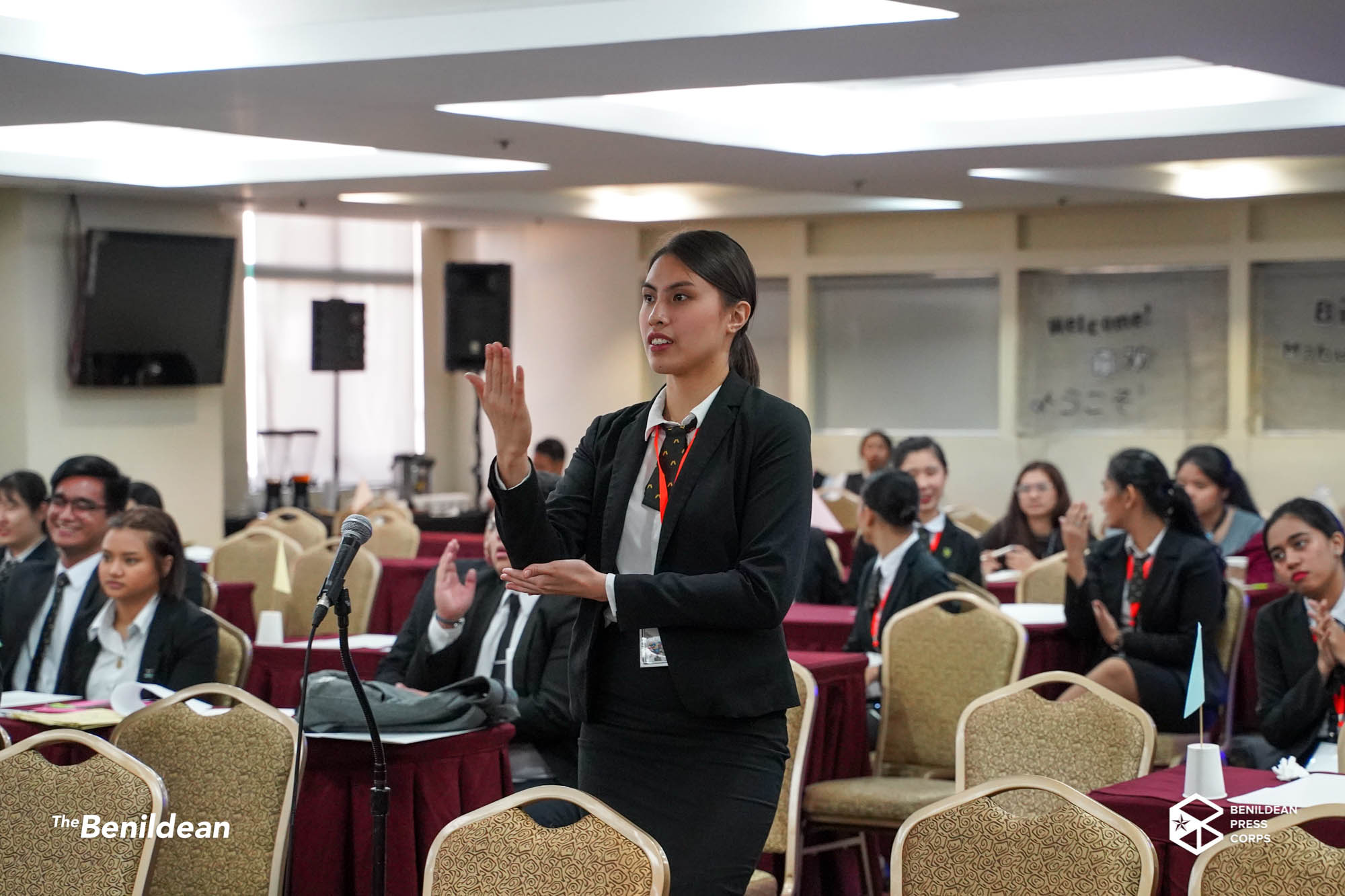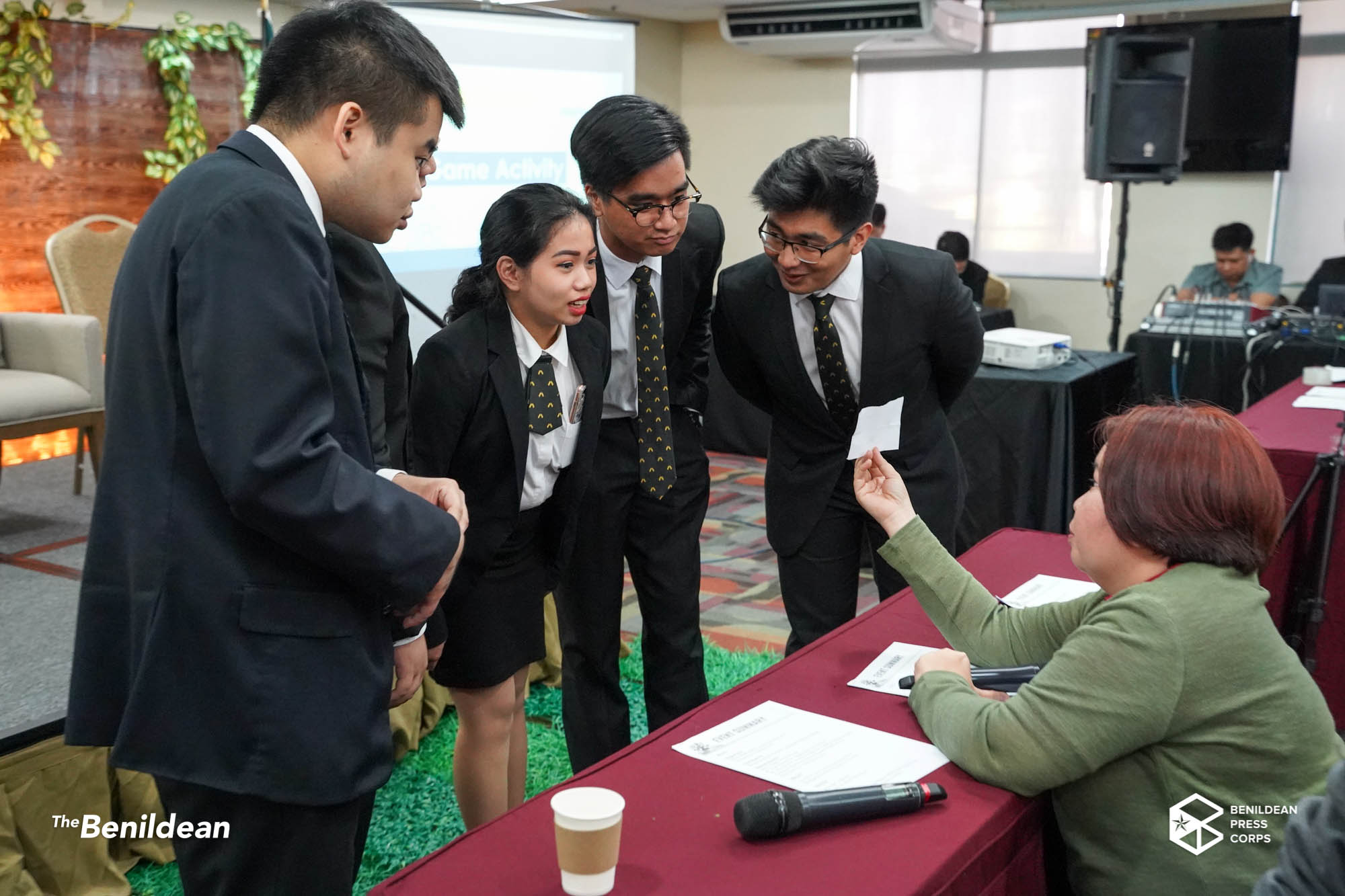



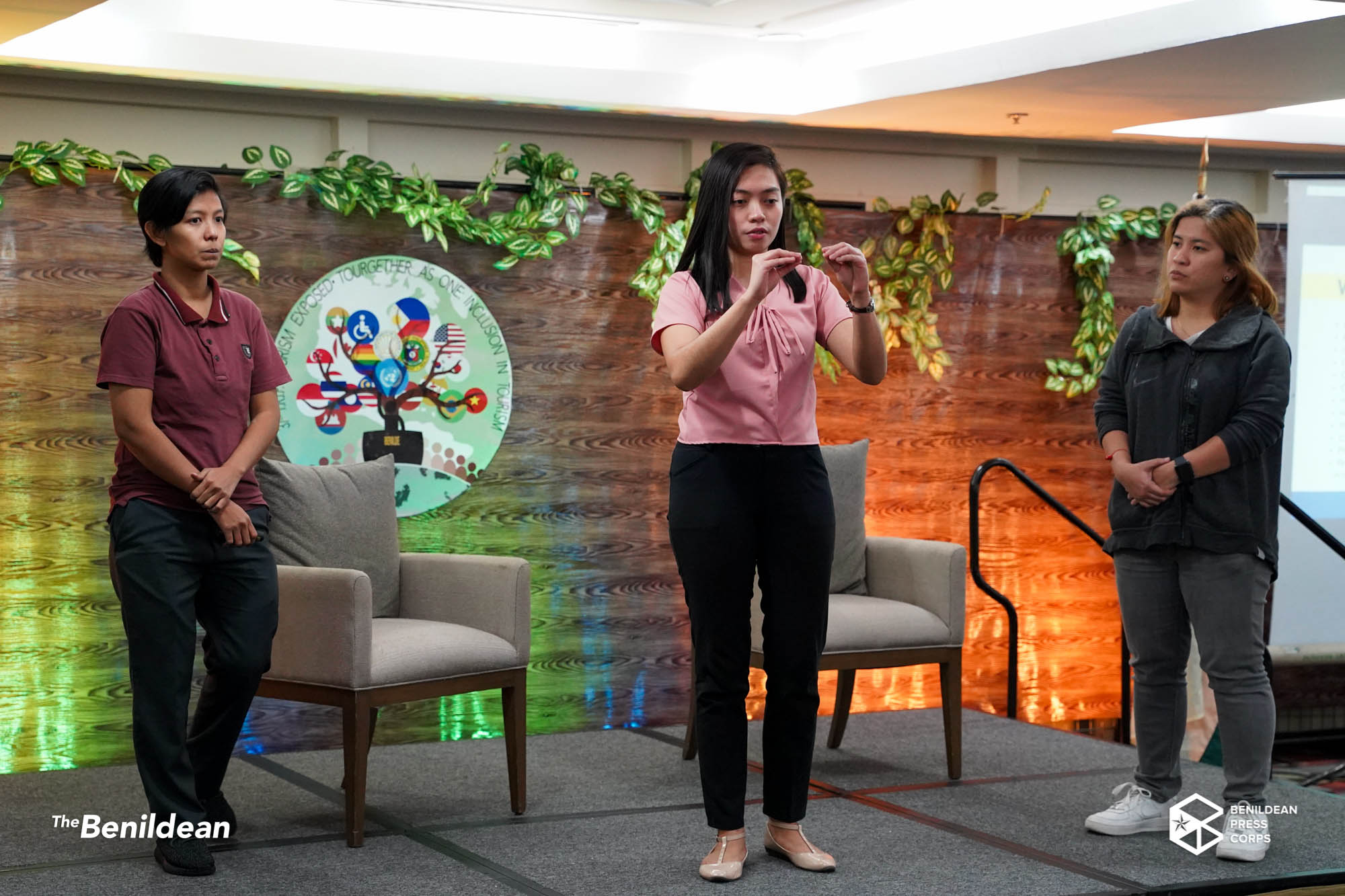
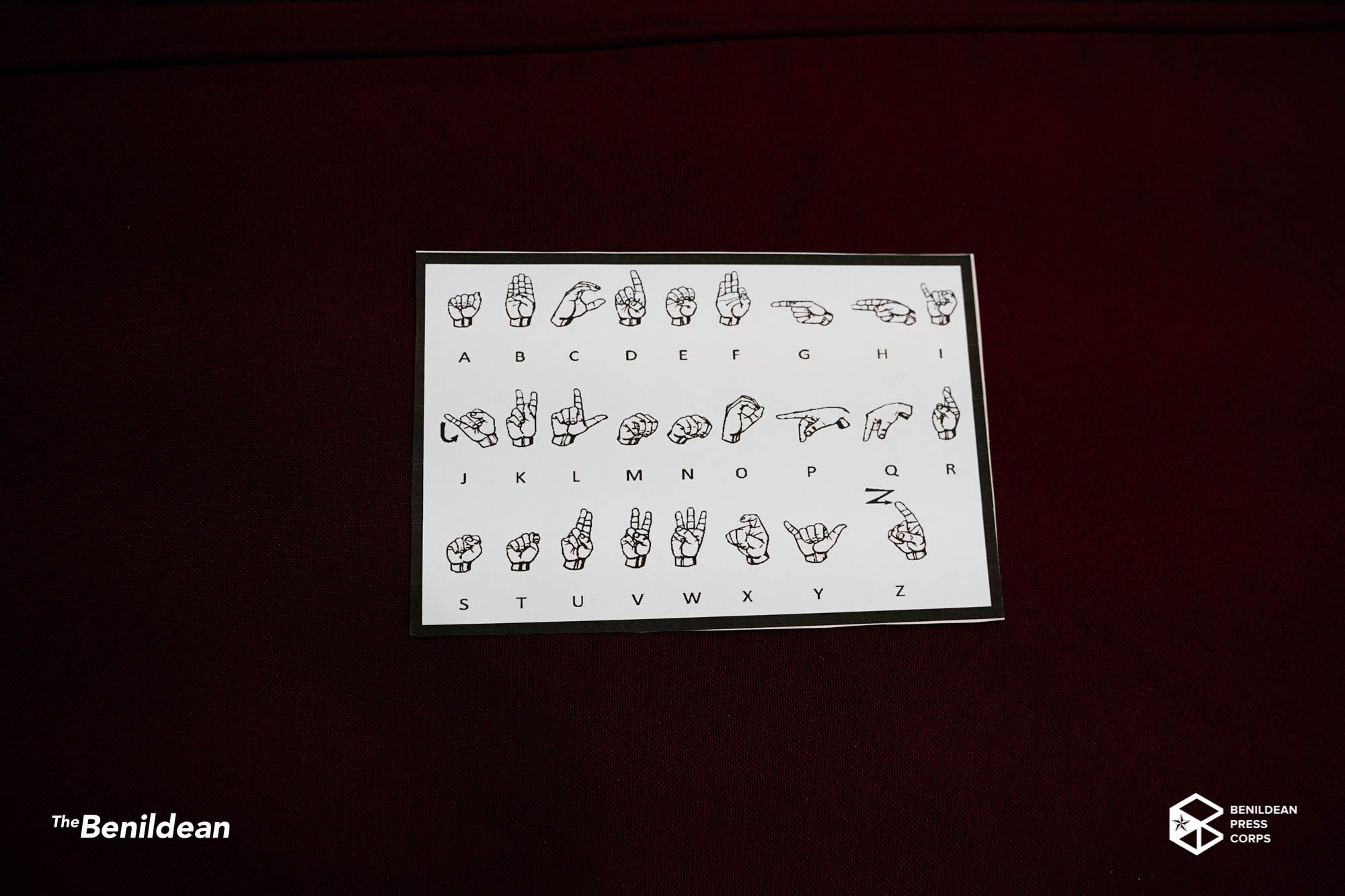
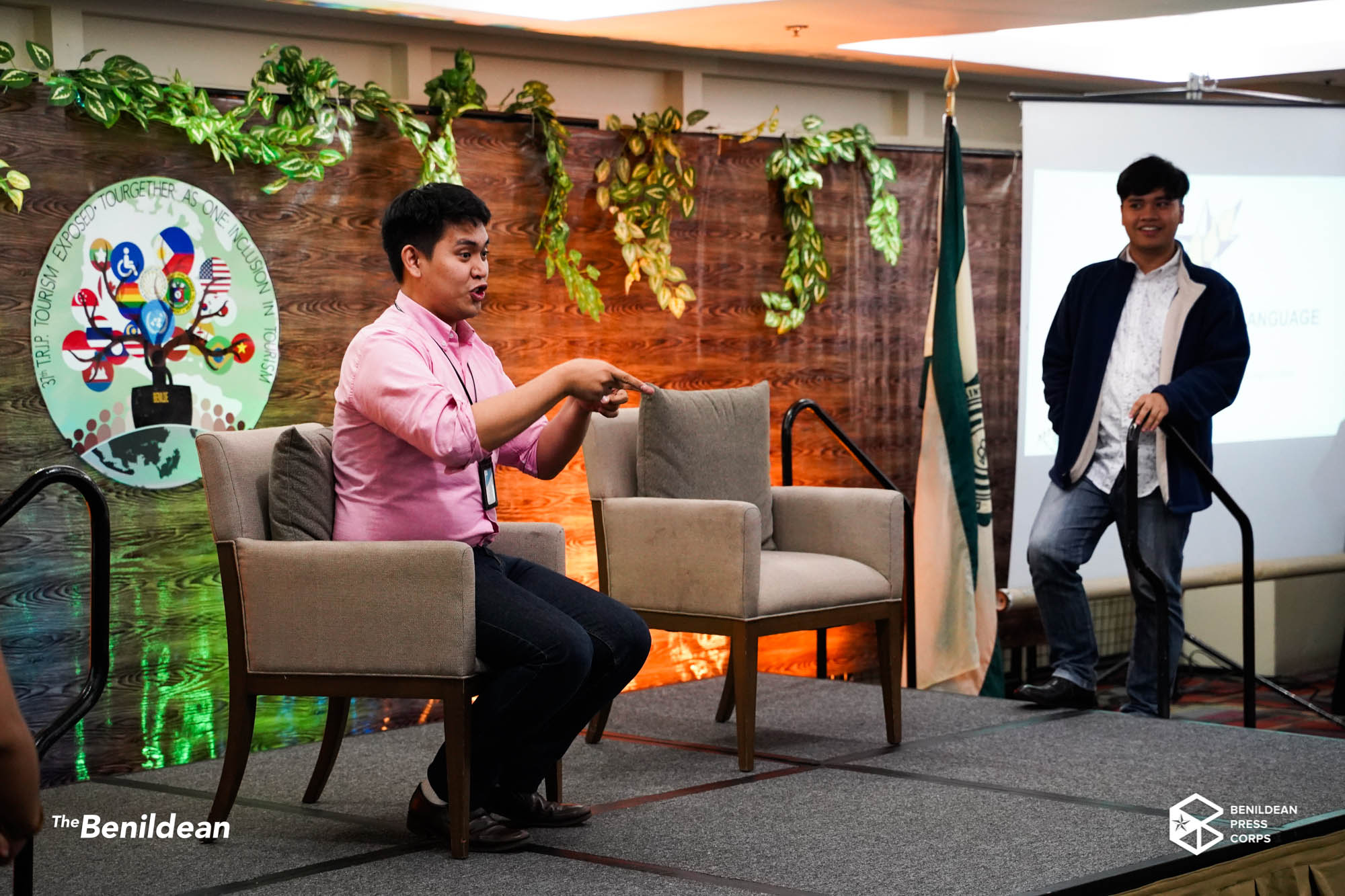
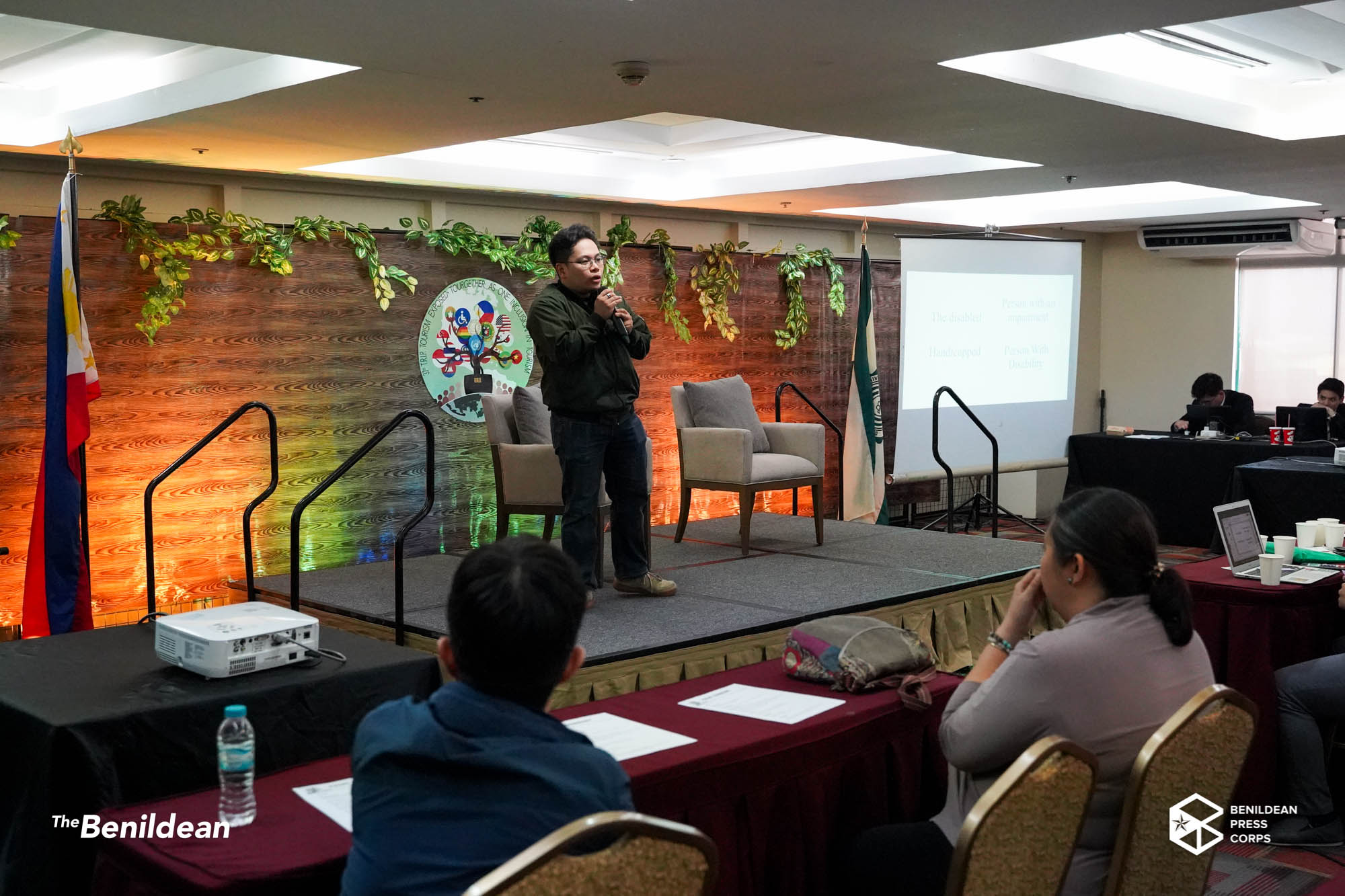
Photos by Enrique Bejar
To foster a more inclusive environment in the tourism industry, HMB31 students from the School of Hotel, Restaurant, Institution Management (SHRIM), as well as members of Travelers in Progress (TRIP), organized a seminar titled “TOURgether as One: Inclusion in Tourism” which discussed barriers towards inclusion and how such barriers can be eradicated for a better industry.
In line with the 37th Travel and Tourism Exposition of the Hospitality Management students, the event was organized with the purpose of bringing awareness on how tourism can be be more accessible to everyone of different races, color, and gender.
“We want to bring awareness that it’s not just the place, but also the people that matter. It’s a topic that should be given more attention. We learn to be socially responsible, and learn to accept people’s individuality […] none of those [differences] should deter the fact that you can travel the world,” Alisa Ramos, Events Management Head of the Production and Documentations Committee of HMB31, said.
According to Ramos, a third-year Hospitality Management student, the end-goal of the event is to give a new insight that tourism should “open doors” for different types of people opportunities to travel, because, “[In] tourism, the heart of it is social inclusion.”
Touring into inclusivity
The event was opened by Ms. Marie Castro, International Hotel Management (IHM) Chair of SHRIM on behalf of SHRIM Dean Angelo Lacson. It had three speakers and workshop events for the attendees on the topics of inclusion in tourism.
Representative from the Department of Tourism (DOT) Mr. Ryan Sebastian was the first to present his talk titled “Barrier-free Tourism” who highlighted that inclusivity is not just limited to the Deaf community, but also to pregnant women, elders, tourists with children, the blind, and other Persons with Disabilities (PWDs). He also emphasized that the blind are usually left behind when it comes to inclusivity.
Furthermore, Sebastian laid out the different actions the government is taking to accommodate the inclusive community such as tour-guide training and accreditation. “[De La Salle – College of Saint Benilde] is the pioneer school for inclusion,” he stated before mentioning that Benilde is one of the government’s partners in teaching 13 tour guides to become employed. However, since Filipino Sign Language (FSL) is “still quite hard,” the government focuses more on a “Point-it Philippines” system since it is “more inclusive.”
During an open forum, he was asked about the what still hinders the inclusive community to this day, he answered that, ”[The] Greatest hindrance [are the] infrastructures in the inclusive community, because of the costs.” This was succeeded by a workshop wherein participants were asked to identify struggles of the inclusive community in the tourism industry and their plans to accommodate these.
The second talk, titled “What Makes an Inclusive Environment,” was by Ms. Nicky Perez from the Benilde Center for Inclusive Education (CIE). A workshop followed after where participants were assigned to create a tour that will cater inclusivity featuring PWDs, elderly, foreigners, and others as their target group.
Manila Bay, National Museum, and Fort Santiago were some of the featured and chosen places by the students, which was further discussed on how would they execute the tour given the type of people assigned. Ms. Perez looked through and pointed out each groups’ strong and weak points for the said tour.
“What will make this tour enjoyable for the PWDs, the elderly, [or] the blind? What kind of tours would make things enjoyable for them?” she ended.
An ice breaker by the Benildean Deaf Association members followed the talk as they conducted a basic workshop on FSL and important lessons about the language.
Concluding the exposition was a talk titled “Conducting Tours for the Deaf” led by Benilde School of Deaf Education and Applied Studies (SDEAS) alumnae, Shiela May P. Tenorio (Batch 2014), Jeanalyn M. Umalis (Batch 2010) and Catherine F. Ballen (Batch 2010) of DEAFinite Tour Guiding Services, one out of 13 accredited tour operators for the Deaf of DOT. With their objective of engaging Deaf people to appreciate the culture of the Philippines, and to promote history and culture of the country, specifically Manila. The alumni discussed how to conduct tours for the Deaf by starting off with the basic greetings in sign language, further immersing the audience with a film showing a view on the life of a Deaf.
The discussion was continued with the introduction of laws related to PWDs, such as Republic Act (RA) No. 9442, or the Magna Carta for PWDs, and RA No. 344 or the Accessibility Law. DEAFinite Tour Guiding Services ensured the audience in providing accessible services for Deaf tourists.
“As future hoteliers and leaders, we are going to lead the Philippines’ tourism scene. We must encourage the development of barrier-free tourism in the Philippines, wherein tourism destinations should be made PWD-friendly through regulations, monitoring and supervisions with regard to accessibility, structure and environment,” Kyle Vergara, the event’s Head Organizer and a Hospitality Management student, said.
The event took place at the Halles de Rheims on the 6th floor of the Angelo King International Center (AKIC) Campus yesterday, March 14.

